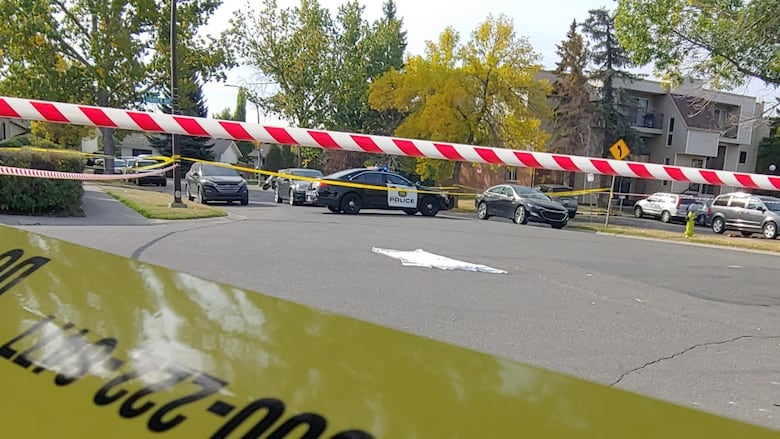Man who murdered roommate gets life sentence, no parole for 12 years
Eddy Nakasenh-Bandasak, 29, was convicted of 2nd-degree murder in 2020 death of Ismail Charanek

A Calgary man who fatally stabbed his roommate was handed a life sentence Tuesday with no chance of parole for 12 years.
Eddy Nakasenh-Bandasak, 29, was convicted of second-degree murder in the death of Ismail Charanek who died in September 2020.
Prosecutor Tiffany Dwyer had proposed a 14-year parole ineligibility period, while defence lawyer Robin McIntyre asked Court of King's Bench Justice Nancy Dilts to consider the minimum period of parole ineligibility for a second-degree murder conviction, which is 10 years.
McIntyre noted her client suffers from a psychotic disorder.
When given the chance to address the court, Nakasenh-Bandasak did not express remorse for his actions, rather he rejected the findings of the judge, addressed a friend and spoke about lawsuits against the Alberta government.
During the trial, Nakasenh-Bandasak's previous lawyer argued he acted in self-defence when he attacked Charanek, stabbing him nine times in the torso and neck.
Drug addiction, financial insecurity
The two men, along with Charanek's girlfriend, were roommates, living together in a southeast apartment.
Nakasenh-Bandasak and Charanek had been close friends for five years. Both were heavy drug users at the time.
"On the surface, they were loyal to each other and trusted each other," said Dilts in her conviction decision last year.
"However, below the surface, drug addiction and financial insecurity created issues over food, money, housing, and possessions."

Nakasenh-Bandasak also has a history of mental illness, paranoia, and always carried a knife, Dilts noted in her decision.
In the early morning hours of Sept. 22, 2020, the two men got into a fight outside their apartment.
'Unnecessarily fatal'
Nakasenh-Bandasak believed Charanek was going to kick him out of the apartment.
Justice Dilts found that Charanek was the aggressor, threatening to kill Nakasenh-Bandasak.
But in rejecting the self-defence argument, Dilts ruled that Nakasenh-Bandasak did not expect Charanek to act on that threat.
Dilts found that Nakasenh-Bandasak was "more concerned about not being able to retrieve his property than about retreating, abandoning his personal items, and staying somewhere else until tempers cooled."
"Mr. Nakasenh-Bandasak's response was disproportionate, angry, and unnecessarily fatal."

